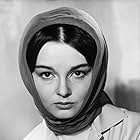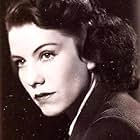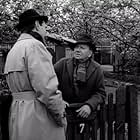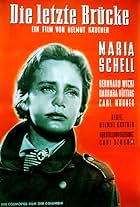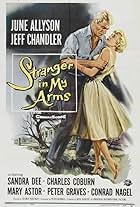Ben Jonson famously described William Shakespeare as 'not for an age but for all time' and 'Hamlet' with its themes of usurped power and revenge would seem ideally suited to the modern, corporate era.
Aki Kaurismaki's customarily deadpan treatment entitled 'Hamlet goes Business' is not everyone's cup of tea whilst Akira Kurosawa's powerful and underrated 'The Bad Sleep Well' is not nearly as derivative of Shakespeare as his 'Throne of Blood' and 'Ran'. Chabrol's darkly humorous 'Ophélia' certainly has its moments but it is probably wiser to draw a discreet veil over Michael Almereyda's 'Hamlet 2000' in which Elizabethan verse is totally unsuited to urban America. That leaves the version by one of Germany's finest directors Helmut Kautner, its title taken from Hamlet's dying words.
This film makes fascinating viewing for those who know the play and this viewer at any rate is impressed as to how well the characters have been adapted to a post WW11 industrial setting. Kautner's directorial style is restrained and as always he gets the best from his players. Especially well handled is the relationship between Hamlet and Ophelia and extremely inventive is the portrayal of Rosencrantz and Guildenstern as a gay couple who put on a ballet that fulfils the function of Shakespeare's 'play within a play' and recreates the murder of Hamlet's father, much to the discomfort of the murderer, a perfectly cast Peter van Eyck. Special mention must be made of veteran Rudolph Forster, the definitive Mackie Messer, whose performance here as Polonius is beautifully understated. It must be said that following his character's death the film loses momentum somewhat and becomes less of Shakespeare and more of Agatha Christie, especially as the police inspector is played by Charles Régnier, a familiar face in Krimifilms of the period.
Unsurprisingly the spectre of Hitler haunts the proceedings and a critic of the time remarked that with this film Kautner was coming to terms with the past. He had in fact successfully navigated the perilous waters of National Socialism, gifting us one of the most beautiful films of that era, 'Romanze in Moll' and continued to illumine the wasteland of 1950's German cinema with such films as 'The Devil's General' and 'The Last Bridge'. Although 'The Rest is Silence' may not be up to their standard, it bears the hallmarks of a director of intelligence, sensitivity and humanity.






